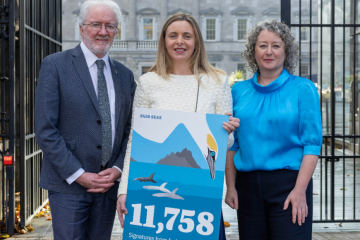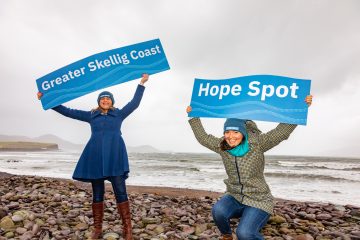Raising a stink: Sandycove harbour latest to record presence of E. Coli

September 1st, 2017
Swimmers have been warned not to enter waters at Sandycove Harbour due to the presence of high levels of E.coli in the water.
Dún Laoghaire-Rathdown County Council is investigating the matter, and has issued a temporary ‘Do Not Swim’ notice at the harbour, with results “expected back shortly”.
E.coli can cause severe stomach and intestinal problems. The HSE has advised that swimming should be prohibited at all the affected beaches until levels return to normal.
Sandycove Harbour is the third swimming area along the East Coast to receive a precautionary swimming ban in the last 30 days. Fingal County Council issued similar notices for Loughshinny and Rush South beaches in late August.
In June, Dún Laoghaire-Rathdown County Council banned swimming and bathing along most of its shoreline. Routine samples from the south Dublin beaches of Killiney, Seapoint, and Blackrock showed high levels of ‘microbial contamination’, with E.coli and enterococci present in the water.
E.coli and enterococci are normal commensals of the intestinal tracts of animals, humans, and birds. The heightened presence of these bacteria would normally suggest the presence of faecal contamination of the water environment.
In each instance, the likely source of contamination has been speculated as due to sewage originating from a wastewater treatment plant or sewer networks.
The Environmental Protection Agency’s (EPA) latest Water Quality in Ireland Report released this week warns that raw sewage is being discharged from over 40 locations across Ireland.
According to the watchdog, hundreds of water bodies around the country have also failed water quality tests. The “worst polluted’ rivers along the East Coast were the Avoca in Co. Wicklow, which flows into the Irish Sea at Arklow, and the Tolka in Dublin, which flows from County Meath to Fingal.
Anti-pollution fines
The current state of Ireland’s waterways not only puts human health at risk but leaves the country potentially liable for millions of euros in anti-pollution fines. Since 2005, the Government has continually failed to meet EU deadlines set for upgrading and improving sewage plants.
In February 2017, the European Commission said that inspections revealed that more than 30 towns and cities across Ireland currently have inadequate treatment plants for waste water.
The Commission has previously stated that it would take the case to the European Court of Justice and has issued repeated warnings to the Irish Government concerning the pumping of raw sewage into rivers and the sea.
The EPA has said that it is now joining forces with Irish Water to identify and address areas that are impacting on the ecology.
“We have locations in the country where there is absolutely no treatment of water, which is not acceptable,” said Andy Fanning, of the EPA’s evidence and assessment section.
Members of the public intending to enter the water at any beach in Ireland are advised to check the water quality in advance by accessing the EPA website at https://www.beaches.ie/or to check notice boards at each area.
[x_author title=”About the Author”]







